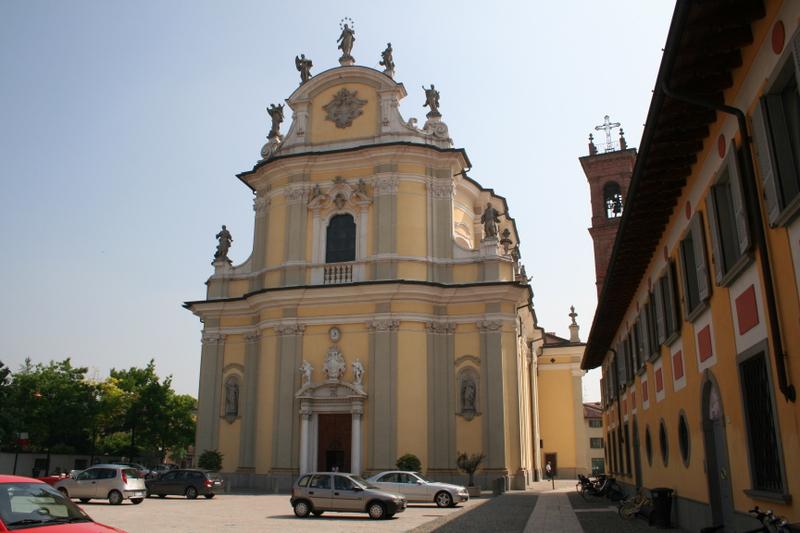Europe’s down economy has some Africans considering migrating home
In Cologno al Serio, Italy, a Senegalese woman is ready to move back because of the down economy. (Photo by Giorces via Wikimedia Commons.)
Italy’s economic crisis continues to deepen.
Its economic growth forecasts have worsened the economy is expected to shrink even more than was once believed. Despite that, the government is imposing austerity measures and increasing taxes.
The marketplace in the northern Italian town of Cologno al Serio radiates tradition. The castle and the moat surrounding it add to a sense of history and security.
But probe a little deeper and you see there’s little feeling of security here.
Italians have left the country in increasing numbers in search of jobs elsewhere. Four million Italians live outside the country while a similar number of migrants have moved into Italy to make a life there. But as the economy struggles it’s getting more difficult for these migrants, many of them from Africa, who find themselves at the bottom of the economic ladder.
Djembe Cisse comes from Senegal in West Africa. She runs a market stall in Cologno al Serio selling imitation leather handbags she buys wholesale from Chinese suppliers. She’s been making a living for 30 years in Italy, sending money to her family back home at the same time. But the country’s shrinking economy is taking a toll: sales are down and taxes are up.
“At the beginning we managed to make a little money but now there’s the economic crisis and we can’t do anything,” Cisse said. “Working and paying, working and paying. You breathe and you pay.”
She pays rent on her place in the market and a large loan on the van she uses to transport her stall and merchandise. She said not only is it harder to support her kids, the economic downturn means she can’t send money home to her parents.
“We can barely even live decently ourselves. In fact, now we take money from Senegal to live,” she said, “to pay the rent, the food, to get through the month. It’s very tough. My parents sometimes send us up to a $1,000 because I can’t make it on my own.”
The number of Senegalese people coming to Italy, as Cisse did, increased dramatically in the 1980s after a new law allowed them to work legally in the private sector.
Some 90,000 Senegalese now live in the country. As they settled in the region they created their own community association. Ahmadou Ndiaye has been vice president of the association for 25 years. He said the situation now is worse than it’s ever been.
“People who’ve lost their jobs can’t find work again — a lot of the unemployment is permanent. Some of our members can’t even pay the rent so they can’t afford to send money home to Senegal,” he said. “This really is a crisis and people are now wanting to buy a ticket to return home to Africa.”
It’s not just money that isn’t flowing into Senegal.
Customarily the Senegalese community repatriates its dead for burial in Africa. Ndiaye said this was a key reason his association was set up. As the crisis has gotten worse, the group’s members have found themselves passing the hat more and more to help people send their relatives back.
Back in the market, Cisse has decided enough is enough.
“Now we’re arranging to shut the business down and go back to live in Senegal. I want to go back, but not my children and their friends. For me it’s not convenient anymore. I spend more than I earn, I get money from Senegal to be able to stay here,” she said
Senegal receives around $1.4 billion a year in remittances, roughly 10 percent of its GDP. Italy is the most popular destination for Senegalese migrants in Europe after France, the country that colonized it. So if enough people follow Cisse home, the West African nation could find itself in a great deal of economic trouble.
Every day, reporters and producers at The World are hard at work bringing you human-centered news from across the globe. But we can’t do it without you. We need your support to ensure we can continue this work for another year.
Make a gift today, and you’ll help us unlock a matching gift of $67,000!
